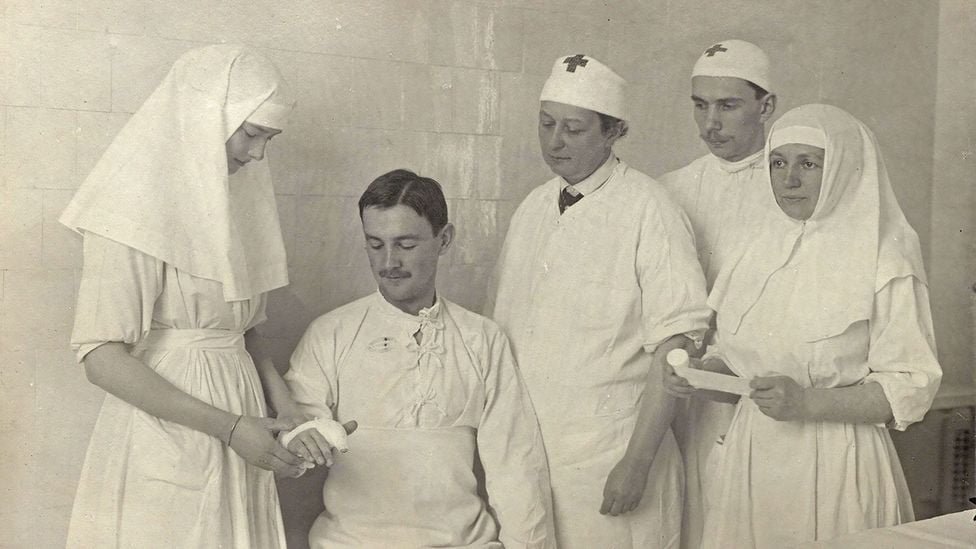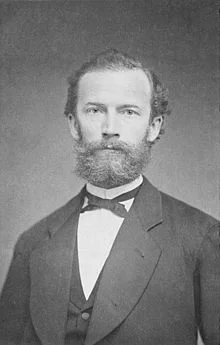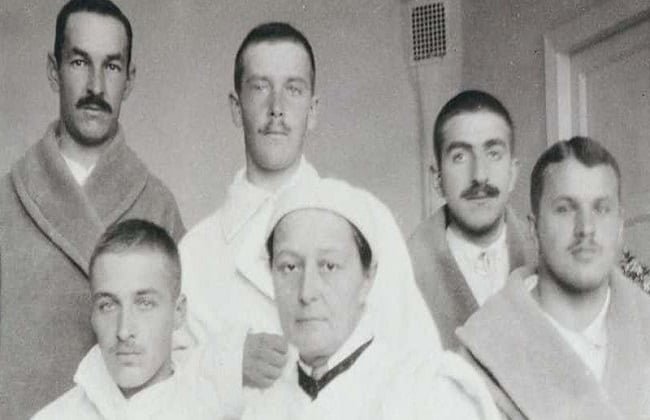Table of Contents
Early Influences and Family Background of Vera Gedroits
Vera Gedroits, born in 1870 into an aristocratic family, was deeply influenced by her upbringing and early experiences. Her full name was Vera Ignatievna Gedroits, and she was the daughter of Prince Ignatiy Gedroits and Maria Mikhailovna. Growing up in the Russian Empire, Vera was exposed to a world of privilege and education, which significantly shaped her future path.
From an early age, Vera displayed a keen interest in learning and a strong sense of independence. Her family’s status afforded her opportunities that were rare for women at the time, including access to quality education. This early exposure to academic pursuits ignited her passion for knowledge and set the stage for her future endeavors in medicine.
Her father’s liberal views and her mother’s nurturing nature created an environment where intellectual curiosity was encouraged. Vera was particularly inspired by her father’s interest in science and his support for her ambitions, despite societal norms that often restricted women’s roles to domestic spheres.
Tragedy struck when Vera’s younger brother died of a preventable illness. This personal loss profoundly affected her and steered her toward a career in medicine. She became determined to make a difference and ensure that others did not suffer the same fate as her brother.
Vera Gedroits’ family background and early influences were instrumental in her development. The combination of her privileged upbringing, access to education, and personal tragedy shaped her into a pioneering figure in the medical field. Her story is a testament to how early influences can impact one’s career path and drive one to break barriers and achieve remarkable feats. Vera’s legacy in medicine continues to inspire many, highlighting the importance of perseverance and dedication in overcoming societal challenges.

Vera Gedroits: Contributions to Military Medicine
Vera Gedroits is renowned for her groundbreaking contributions to military medicine, particularly during the Russo-Japanese War (1904-1905). Her innovative techniques and dedication to saving lives revolutionized battlefield medical care and set new standards for surgical practices.
During the Russo-Japanese War, Gedroits volunteered as a surgeon and worked tirelessly on the front lines. Faced with a high number of casualties and limited resources, she developed efficient methods to treat wounded soldiers. One of her most notable contributions was the introduction of mobile field hospitals. These hospitals could be quickly set up near battlefields, allowing for immediate surgical intervention, which significantly increased survival rates among injured soldiers.
Gedroits also pioneered the use of aseptic techniques in field conditions, which drastically reduced infection rates. Her emphasis on cleanliness and proper wound care was ahead of its time and laid the groundwork for modern surgical practices. Additionally, she advocated for the use of local anesthesia in surgeries, which improved patient outcomes and recovery times.
Her work during the war earned her the respect and admiration of her peers and superiors. She was one of the first women to hold a position as a military surgeon in the Russian Imperial Army, breaking gender barriers and paving the way for future generations of female medical professionals.
Beyond the battlefield, Gedroits continued to contribute to military medicine through her research and publications. She wrote extensively on surgical techniques and the treatment of war injuries, sharing her knowledge and experiences with the broader medical community. Her publications were widely read and respected, influencing both military and civilian medical practices.
Vera Gedroits’ contributions to military medicine were groundbreaking and far-reaching. Her innovative approaches and commitment to improving medical care on the battlefield saved countless lives and established her as a pioneering figure in the history of medicine. Her legacy continues to inspire medical professionals and serves as a reminder of the critical role that innovation and dedication play in advancing healthcare.
Pioneering Female Surgeon: Vera Gedroits’ Breakthrough Techniques
Vera Gedroits stands out as a pioneering female surgeon whose breakthrough techniques significantly advanced the field of surgery. At a time when women were seldom seen in the operating room, Gedroits not only broke gender barriers but also introduced surgical innovations that had lasting impacts on medical practices.
One of Gedroits’ most notable contributions was her work with abdominal surgery. She developed new methods for performing laparotomies, which involved making an incision into the abdominal cavity. Her techniques were less invasive and reduced the risk of complications, leading to better patient outcomes. These advancements were particularly beneficial in emergencies, where quick and effective surgical interventions were crucial.
Gedroits was also a strong advocate for the use of antiseptics in surgery. She implemented rigorous sterilization protocols for surgical instruments and operating environments, significantly reducing infection rates. Her insistence on maintaining a sterile environment was revolutionary at the time and became a standard practice in surgical procedures.
In addition to her technical innovations, Gedroits emphasized the importance of patient-centered care. She believed that understanding a patient’s overall health and psychological state was critical to successful surgical outcomes. This holistic approach to surgery was ahead of its time and influenced future generations of surgeons to consider the broader aspects of patient care.
Gedroits’ groundbreaking work extended beyond the operating room. She was also a prolific writer and educator, sharing her knowledge and techniques through numerous publications and lectures. Her written works provided valuable insights into surgical practices and were widely used as reference materials by medical professionals.
As a pioneering female surgeon, Vera Gedroits’ breakthrough techniques and holistic approach to patient care left an indelible mark on the field of surgery. Her innovations not only improved surgical outcomes but also paved the way for future advancements in medical practices. Gedroits’ legacy as a trailblazer in surgery continues to inspire and influence modern medicine.
Educational Journey of Vera Gedroits: From Russia to Europe
The educational journey of Vera Gedroits is a testament to her relentless pursuit of knowledge and excellence in the field of medicine. Born into an aristocratic family in Russia, Gedroits’ early education was marked by privilege and opportunity, setting the foundation for her illustrious career.
Gedroits initially studied at home, receiving a well-rounded education that included languages, sciences, and the arts. Her intellectual curiosity and academic prowess were evident from a young age. Recognizing her potential, her family supported her aspirations to pursue higher education, which was unconventional for women at the time.
In pursuit of her medical ambitions, Gedroits enrolled at the Medical Faculty of the University of Lausanne in Switzerland. This decision was driven by the limited opportunities for women in Russia’s medical schools. Studying in Europe exposed her to advanced medical knowledge and practices, which were not yet prevalent in her home country. During her time in Lausanne, Gedroits excelled academically and gained hands-on experience in various medical disciplines.
Her education in Europe played a crucial role in shaping her medical career. She was particularly influenced by the innovative surgical techniques and aseptic methods she learned during her studies. These practices would later become integral to her contributions to military medicine and surgery.
After completing her studies, Gedroits returned to Russia, where she faced the challenge of integrating her advanced knowledge into the local medical landscape. Despite societal and professional barriers, she quickly established herself as a skilled and dedicated surgeon. Her European education provided her with a unique perspective and expertise that set her apart from her contemporaries.
Vera Gedroits’ educational journey from Russia to Europe was instrumental in her development as a pioneering medical professional. The knowledge and skills she acquired during her studies laid the groundwork for her groundbreaking contributions to surgery and military medicine. Her story underscores the importance of education and the pursuit of knowledge in achieving professional excellence and making significant advancements in any field.
Legacy and Honors: Remembering Vera Gedroits’ Impact
Vera Gedroits’ legacy is marked by her remarkable contributions to medicine and her role as a trailblazer for women in the field. Her innovative techniques and dedication to patient care have left an indelible mark on medical practices, earning her numerous honors and a lasting place in history.
Gedroits’ impact on military medicine during the Russo-Japanese War is perhaps her most celebrated achievement. Her introduction of mobile field hospitals and emphasis on aseptic techniques revolutionized battlefield medical care, saving countless lives. These innovations were recognized by the Russian Imperial Army, and she became one of the first women to hold the position of a military surgeon, breaking significant gender barriers in the process.
In addition to her military accomplishments, Gedroits made significant contributions to civilian medical practices. Her advancements in abdominal surgery and her holistic approach to patient care influenced future generations of surgeons. Her writings and research provided valuable insights that were widely respected and used by medical professionals around the world.
Gedroits’ legacy extends beyond her medical achievements. She was a passionate advocate for women’s education and professional development. By excelling in a male-dominated field, she paved the way for future generations of female doctors and surgeons. Her story continues to inspire women to pursue careers in medicine and other STEM fields, highlighting the importance of perseverance and dedication in overcoming societal challenges.
In recognition of her contributions, Gedroits received numerous honors and awards throughout her career. Her work was celebrated by both her contemporaries and future generations, ensuring that her legacy would endure. Monuments and memorials have been erected in her honor, and her life and achievements are often included in medical history curricula.
Remembering Vera Gedroits’ impact is not just about celebrating her accomplishments, but also about acknowledging her role in advancing the field of medicine and promoting gender equality. Her legacy serves as a reminder of the importance of innovation, dedication, and the pursuit of excellence in making meaningful contributions to society.
Vera Gedroits: Intersection of Medicine and Literature
Vera Gedroits was not only a pioneering surgeon but also a prolific writer who skillfully blended her medical expertise with her literary talents. Her unique position at the intersection of medicine and literature allowed her to contribute to both fields in profound and lasting ways.
Gedroits’ literary work provided a detailed and humanistic view of the medical profession. She authored numerous articles, papers, and books that delved into her experiences as a surgeon, her observations on patient care, and her thoughts on medical ethics. Her writings were characterized by their clarity, compassion, and insight, offering valuable perspectives to both medical professionals and the general public
References:
Biographical Dictionaries and Encyclopedias
- “Biographical Dictionary of Women in Science: Pioneering Lives From Ancient Times to the Mid-20th Century” by Marilyn Ogilvie and Joy Harvey
- “The Oxford Encyclopedia of Women in World History” edited by Bonnie G. Smith
Academic Journals and Articles
- “The Role of Women in the Development of Medicine” published in Medical History
- “Pioneers of Surgery: Contributions of Women Surgeons” in Surgical Innovation
Books on Military Medicine and Medical History
- “Battlefield Medicine: A History of the Military Ambulance from the Napoleonic Wars Through World War I” by John S. Haller Jr.
- “Women in Medicine: An Encyclopedia” by Laura Lynn Windsor
Online Resources
- National Institutes of Health (NIH) website: National Library of Medicine – History of Medicine
- The Russian Biographical Dictionary online archives
Historical Publications
- “The Evolution of Modern Surgery” by Lynda Payne
- “Military Surgery in the Russo-Japanese War” by various authors published in The Lancet
University Theses and Dissertations
- “The Life and Contributions of Vera Gedroits: A Russian Surgeon in the Early 20th Century” – Doctoral thesis available through university libraries.
Also, read about ncedcloud































Comments on “Vera Gedroits: Early Life, Education, Career & Family”
Comments are closed.